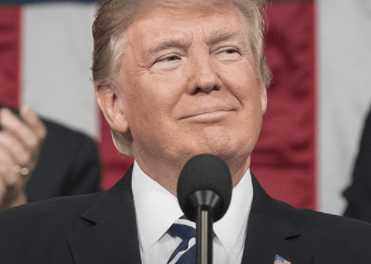How to talk with kids about the cyberbullying they see from famous adults

Click below to listen to Larry’s interviews with experts quoted in this post

This post first appeared in the San Jose Mercury News
As a columnist and as founder of SafeKids.com and co-founder of ConnectSafely.org, I’ve written and spoken about cyberbullying. My work largely has focused on advising parents on how to talk with their kids about how to treat others online and how to respond if they feel attacked. But that advice is more problematic when powerful people — politicians, media personalities and even the president of the United States, are publicly cyberbullying others. How do you tell your children to behave civilly when people in authority – perhaps people you or they admire – are acting badly?
For the record, the closest thing to an “official” definition of bullying, as posted on the federal government’s StopBullying.gov website is “unwanted, aggressive behavior among school aged children that involves a real or perceived power imbalance. The behavior is repeated, or has the potential to be repeated, over time.” Add technology and you have cyberbullying. And, if you take away “school aged children,” you have the scene that’s been playing out prominently on the national stage since the beginning of the 2016 presidential campaign, including last week’s Twitter storm against both MSNBC’s Mika Brzezinski and the video of the anonymous CNN reporter who President Donald Trump was pretending to beat up.
There are also plenty of examples of media personalities who have repeatedly and aggressively made personal attacks against Trump and others. Trump may be the most powerful person in the world, but anyone with a large media platform also has “real or perceived power.”
To get insight, I spoke with some of the country’s leading experts on cyberbullying. All were optimistic that kids can act better than some powerful adults.
“I think we need to give young people a little bit of credit,” said Rosalind Wiseman, founder of Cultures of Dignity and author of “Queen Bees & Wannabes,” which was turned into the movie “Mean Girls.”
“If we talk with them straightforwardly, honestly and factually, the family values you hold dear will come through and the process of doing that will reaffirm what you stand for,” Wiseman said.
It is possible to support someone’s policies while criticizing their behavior, said Wiseman. While saying that Trump “reminds me of every seventh grade boorish kid whose parents don’t him accountable,” she also chides those on the left who “get so upset about how he’s behaving that feeds the notion of him standing up to people who ‘need’ to be put in their place.”
Justin Patchin, co-director of the Cyberbullying Research Center, said that students are influenced by close adults and are “less likely to be hurtful to others online or off if they think they’re parents would be disappointed by it and if they think their valued teacher or other educators would be hurt by it.”
He advised parents who support Trump’s policies but not his cyberbullying to remind children that “there is a lot of stress on individuals and sometimes we do and say things that we shouldn’t.” He advises parents to separate his political leadership from his personal behavior.
Patti Agatston, president of the International Bullying Prevention Association and a counselor with a student assistance program that serves students in Cobb County, Georgia (where Trump received 47 percent of the vote), said “it’s important to still stress civility,” regardless of your political views. Parents who support Trump’s policies “can say ‘we respect what he’s trying to do with policy, and what he’s trying to do economically,’ but they can also stress that “it’s really important to use our power wisely and treat others with respect and kindness.”
Parents are the most important force when it comes children’s values, said Kerry Gallagher, an educator who works with me as ConnectSafely’s director of K-12 education.
“While our children are looking to adults for guidance, they have to develop their own critical minds. The adults that they’re going to hear from the most in their life is their parents, not Donald Trump or any other famous person, so they need to hear those messages consistently from their parents,” Gallagher said.
None of the experts I spoke with agree with Sarah Huckabee Sanders or Melania Trump’s defense that the president was merely fighting back when he commented on Mika Brzezinski’s appearance after she criticized aspects of his personality.
“People are going to occasionally say things we don’t like about ourselves and our friends,” said Agatston. “The important thing is to help our kids be resilient and understand that sometimes people are going to sing your praises and sometimes they are not, but if you have a good sense of who you are then you don’t need to attack back.”
Politics aside, Trump’s reaction is “a terrible message to send to kids,” said Patchin. “Fighting fire with fire is not a good approach.”
Parents who don’t support Trump’s policies should also think about how they speak with their kids by separating out the personal from the political. It’s fine for parents to point out why they disagree with the president or even argue that he’s not – for whatever reasons – qualified for the office, but critics should avoid personal attacks, insults and body shaming.
I was appalled when I saw numerous inappropriate comments about New Jersey governor Chris Christie’s appearance along with the appropriate ones about his sitting on a state beach while the public was temporarily banned from beaches until the state passed its budget. It’s fine to disagree with his actions, but it’s not OK to make fun of his weight, just as it’s not OK to make fun of the size of the president’s hands or other aspects of his appearance or for Trump to have made fun of Megyn Kelly and Brzezinski along with all personal insults he hurled at his opponents during last year’s presidential primary and general election.
We live in very troubling times, which requires thoughtful action on multiple fronts. But it also requires that we “teach our children well,” not only because it’s the right thing to do but because it won’t be long before their generation will be leading our country.